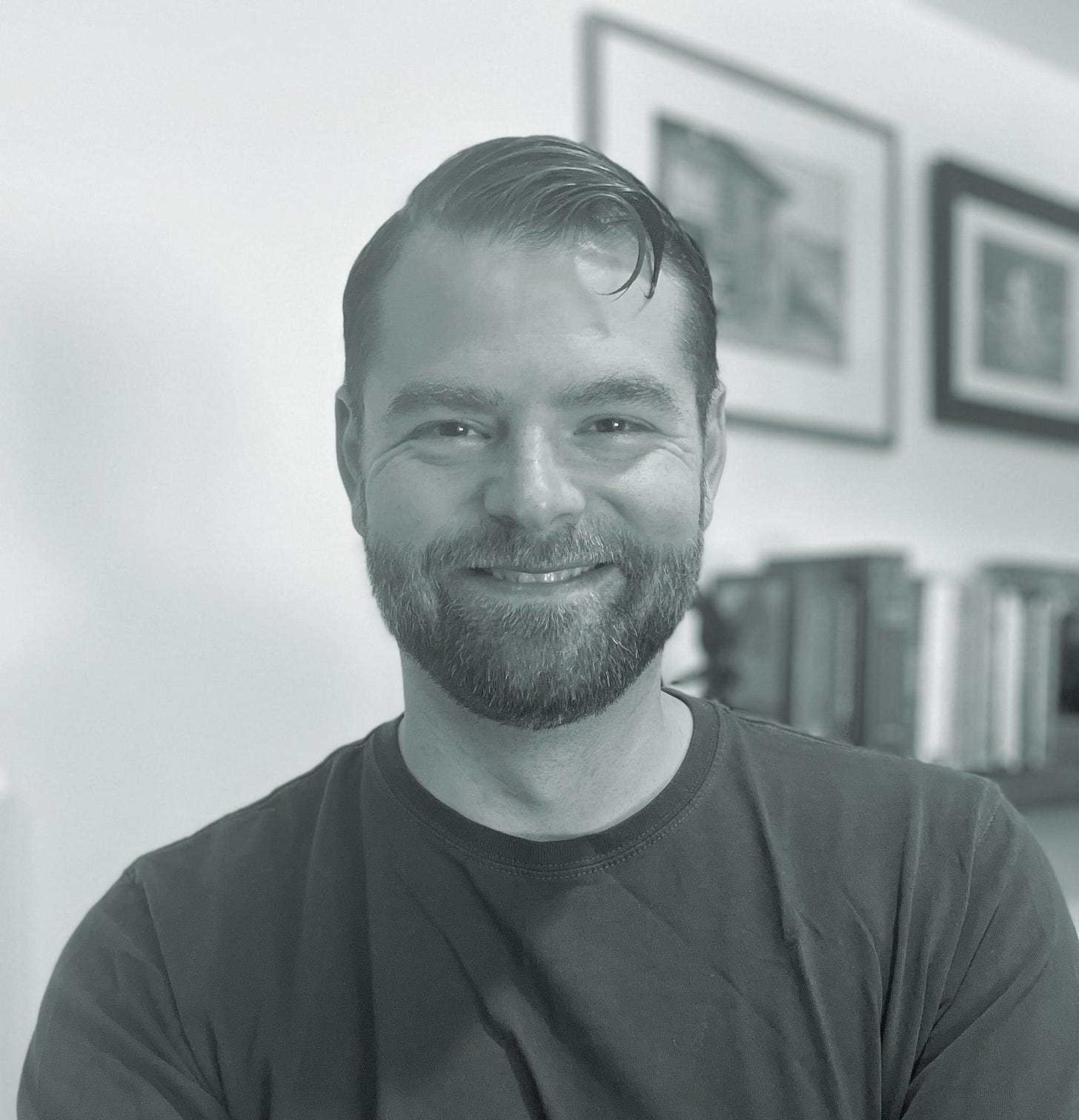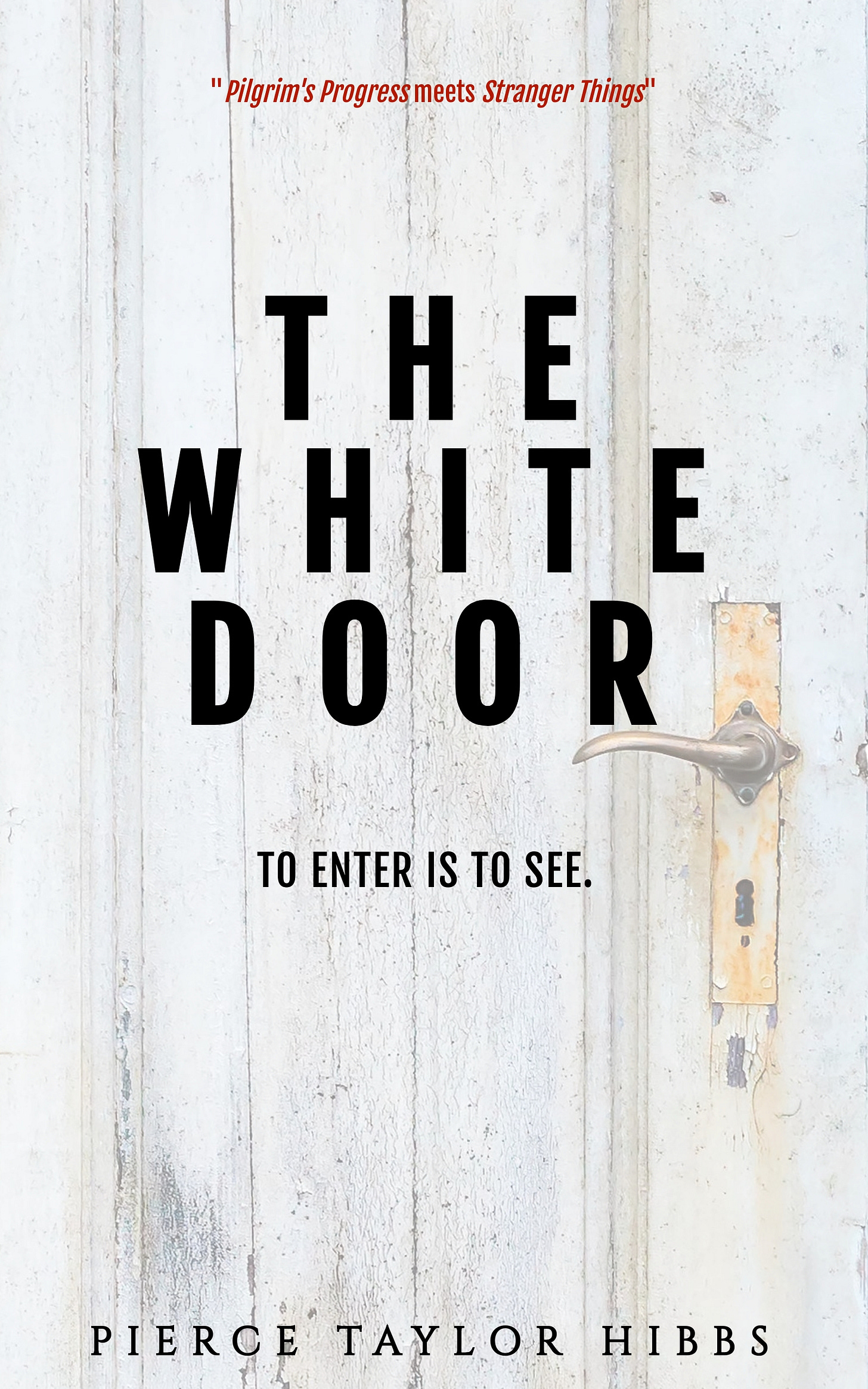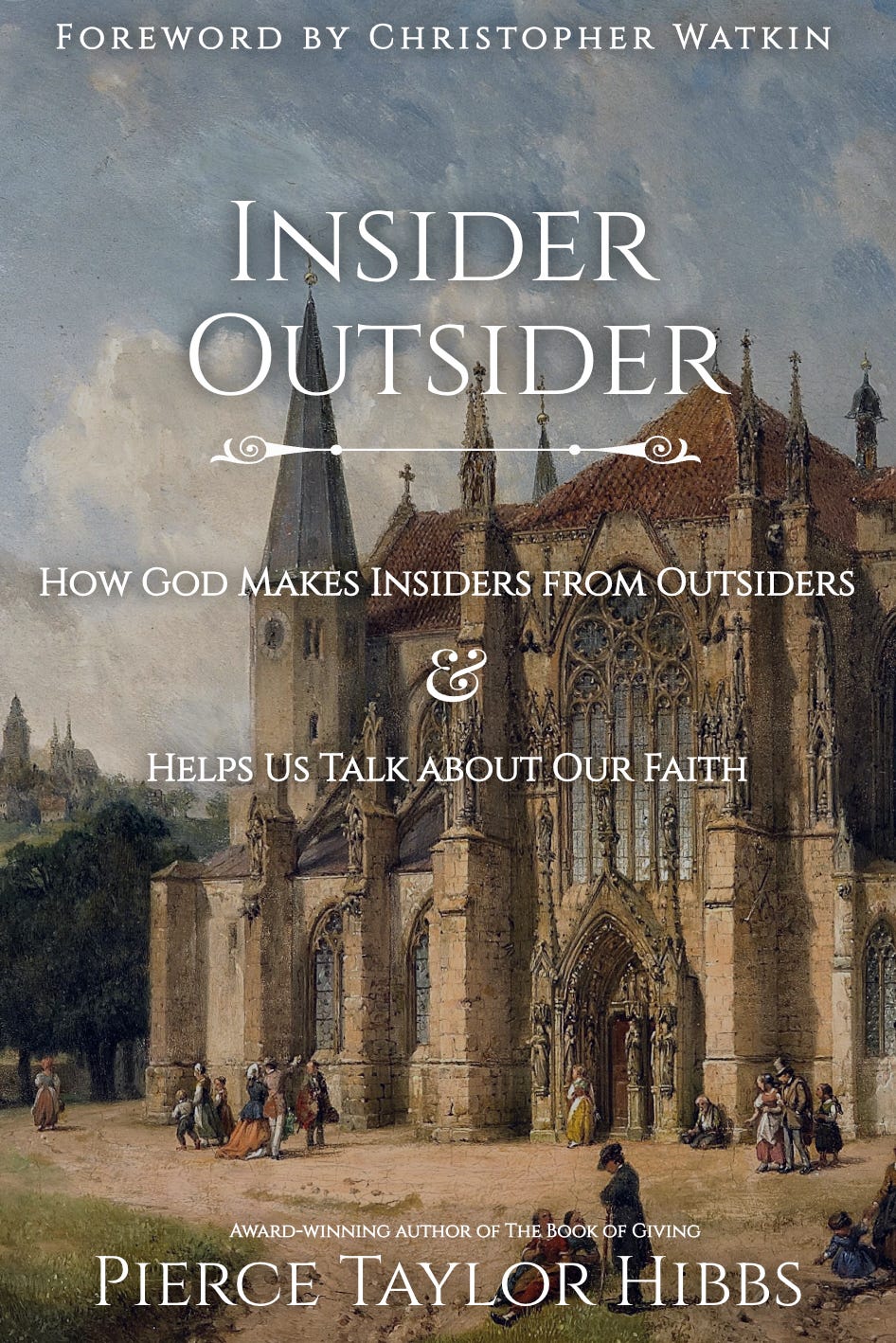Interview with Pierce Taylor Hibbs: Publishing, Platform, and Perspective
"No one told me that publishing a book isn't the hardest part."
This is the third in my four-week series of author interviews in my larger series, Publication, Platform, and Perspective. I’m sharing insights from writers who represent a range of experiences and backgrounds both in the writing craft and in the publishing business. Be sure to read to the end for details about a giveaway of one of Pierce’s books!
Also look for the readings we will pick up with in a few weeks …
This week features Pierce Taylor Hibbs (MAR, ThM Westminster Theological Seminary), who serves as Senior Writer and Communication Specialist at Westminster Theological Seminary. He is the author of over 20 books, including the Illumination Award-winning titles Struck Down but Not Destroyed, The Book of Giving, The Great Lie, and One with God. He lives in Pennsylvania with his wife and three kids.
Karen: Please tell us about your books and who you are as a writer/author/editor.
Pierce: I have a poet’s heart and a passion for theology. So the majority of my books explain and explore the truths of Scripture and then apply them to our spiritual understanding and development. (That’s what you get when you give an English major theological training.) I have a wide range of interests, which has led me to cover everything from anxiety (Struck Down but Not Destroyed) to the nature of language (Theological English; The Trinity, Language, and Human Behavior) to the doctrine of the Trinity (The Speaking Trinity & His Worded World; One with God). I have also written two collections of poems (Borrowed Images and word by Word) and my first work of fiction—The White Door. My latest non-fiction has focused on what it means to grow in Christlikeness (The Christ-Light) and how we can talk about our faith with others (Insider-Outsider), i.e., apologetics.
The major themes of my work are the trinitarian nature of God, the centrality and power of language, growth through suffering, and poetic sensitivity. I’ve written over twenty books to date—some with traditional publishers (P&R, Wipf & Stock), but most independently. I am what they call a “hybrid author.” I love traditional publishers and the work they do, but I’m happy to write and publish on my own if my project has passion behind it and provides a clear service to everyday people in the church.
Karen: How (or where) did you publish your books?
Pierce: I began with traditional publishers for my academic work: both Theological English and The Trinity, Language, and Human Behavior were published by P&R (Presbyterian & Reformed). The next two books were through Wipf & Stock (The Speaking Trinity and Finding God in the Ordinary). From then on (starting in 2020), I dove into the world of independent publishing and started producing my own work. This actually took a lot of training with specialized tools. I say that because most people assume that self-published authors just “wing it on Amazon.” That might be true for some people, but not for me. I took this independent publishing venture very seriously.
Struck Down but Not Destroyed: Living Faithfully with Anxiety came out in 2020, just before COVID hit (talk about some providence there!). That built on my years of struggling with an anxiety disorder. From there, I began writing about suffering more broadly (Finding Hope in Hard Things) and then about gratitude (The Book of Giving). Subsequent books have focused on the presence of God and its spiritual implications (The Great Lie and One with God). And lately I’ve gotten back to my roots and published two collections of poems (spanning some 20 years), in addition to my first novel. So, the quirky and creative English major emerges at last.
Karen: Share more of the journey to publication. What was that like?
Pierce: Publishing books has been both a freeing joy and a trying journey. As a kid, I always wanted to be a writer, and I dreamed of publishing a book someday. But no one told me that publishing a book isn’t the hardest part. The hardest part is getting someone to read it. Most people don’t know these figures, but if you include self-published books, an estimated 4 million books are published every year. And the average book sells less than 200 copies over twelve months, and less than 1000 over its lifetime. There are actually thousands of ebooks published each year that never sell a single copy. Those numbers can be discouraging. Getting a book out into the world is no longer the challenge. It’s getting people to actually read it.
But for authors such as myself who don’t have a “big name,” the ongoing difficulty is the constant pull you feel to prove the worth of your work. This is especially the case if you’re still considering traditional publishers (and I do). I enter lots of book competitions to get my titles more visibility, and several have, by God’s grace, won awards, even in competition with books from bigger traditional publishers. But there’s always a push to prove to others that you’re a “real” writer, that you’re valuable. And for Christians, that’s a trying spiritual battle.
Many people advocate for the necessity of some sort of platform (often on social media or via an email list, and I have things set up for that). But I have serious reservations about consciously building a platform. It’s a spiritually dangerous endeavor, and I’ve seen many writers be corrupted by it. However, platform is often a primary metric traditional publishers (even Christian ones) consider in deciding whether or not to take on a book project or new author. And I get it: book publishing is a business, not a charity. Publishers have to take calculated risks. But it can be a harsh world for small authors who would rather spend their time practicing the craft than building a following. I fall into the latter category. It’s the craft that I love the most, not the potential for fame or recognition. So, I pour my time into writing and reading.
Karen: What were the most challenging parts of the publication process?
Pierce: For me, the biggest barrier to publication has always been self-doubt. My late father recognized this in me when I was eight years old. In a letter he wrote before his first major brain surgery, he said, “You’re so talented, but you don’t believe in yourself.” He encouraged me not to be proud or self-confident but to have faith that God would help me to do and be what he called me to do and be. Many years later, I still struggle with this. I’m constantly questioning whether I measure up to the standards and expectations of others, publishers included. I avoid this to a degree by publishing independently (but then I just worry about what readers think). And though a rejection letter from a traditional Christian publisher certainly does not mean, “You’re not good enough,” it’s hard to escape the sense of belittlement writers can feel.
In the end, this is a spiritual battle concerning whether or not, as a writer, you truly believe your value is found in Christ alone. So, that’s something I find myself struggling with often and praying over. And having prayer support and open conversations with other writers can help a great deal. There aren’t enough discussions about the spiritual welfare of writers and creatives—conversations not just about what they are making but about what they are experiencing internally throughout that process.
Karen: What do you wish you knew going in that you didn’t know?
Pierce: Many things! But here are probably the two biggest. First, the greatest challenge is not publishing a book but getting people to read it. This wasn’t the case in previous generations. But it is in our day, when people talk about publishing being “democratized.” If anyone can publish, then that means you have to either learn how to be an effective marketer of your own work, or else be content to not reach a ton of readers. Second, stop trying to measure yourself against other writers. No good comes from that. Writers will still do this nonstop anyway (and social media is the worst in this sense because writers often just post their successes). But we need constant reminders of it, and it would have been helpful for an experienced writer to have told me this at the outset. I think this actually takes an entire community of writers changing how we talk about published work and how we determine the “merit” of a given book. Right now, many discussions about books are competitive in nature (which book is “better” than another), instead of talking about which books develop facets of a reader’s character and in unique ways, all in service to Christ and his church.
Karen: What reality of the publishing world would you want others to know based on your experience?
Pierce: I would want people to know that publishing a book is never a ticket to success, and that Christian writers need regular encouragement. Many people I speak to act as if publishing a book means you have “made it” as a writer. But given the reality of publishing, getting a book out there is a small first step in seeing how your message can serve others, and many things are demanded of writers after that point. In addition, I can’t tell you how much it’s meant to me over the years to have Christian brothers and sisters simply ask, “How can I be praying for you right now?” The encouragement that comes from prayer is momentous. So, pray for the writers you know and love. They need it.
Karen: Why do you write? How connected are writing and publishing for you?
Pierce: For me, writing is a process of exploration and discovery. Publication is simply the means of sharing the results for another’s benefit. I’ve told people many times, “If I don’t write, I won’t learn.” This is puzzling to some people who think that you write only after you know everything you want to say. That’s not the case for me. Writing is a deeper processing and questioning of how things work and what’s happening inside me. It certainly involves research and prior thought, but that’s not the whole of it. Writing is what Annie Dillard described as something analogous to a worm feeling around for space in the dark. There is movement and discovery in writing—a sort of reaching out. And while I’m a voracious (albeit slow) reader, reading alone doesn’t develop my heart and mind deeply enough. Writing is what inscribes things on my soul. If I stop writing, I stop learning; I stop growing. So, I’m almost always in the middle of a writing project—whether it be a book, an article, or a post for a website or magazine.
Having said that, publication is important to me because I have to keep thinking not only of what I want to say but of how I want to say it to others. Publication is an outward-facing endeavor. It’s about taking what’s been churning inside you and giving it to someone else, as if to say, “Hey, have a look at this. What things rise or fall in you as you read? Does it help you in some way? Is it confusing?” Answering those sorts of questions is something you do constantly with publication in mind.
Over the years, I’ve realized that my wife and I are both makers. We like to create things for others. Publication is the culmination of that passion, so it’s very exciting! I just opened a box of my first novel yesterday and held a copy in my hand. That’s a special moment. You get to see where all the work has landed in concrete form. My favorite part of the publishing process is handing out copies of the book to friends and family.
Karen: What has been the most rewarding experience of writing/publishing for you?
Pierce: The most rewarding experience of writing and publishing has simply been getting the chance to serve readers. Sometimes you don’t hear anything from people about something you’ve written, and that’s fine. But occasionally a reader will reach out and say, “Hey, this book really helped me with X. Thank you for writing it!” Those are the moments when you’re reminded that writing and publishing is really just another way to serve Christ and the people around you. I’ve learned to accept that if a book I write can help lead a single reader closer to Christ, then it’s a success.
Karen: Where can readers find out more about you and your work?
Pierce: The best way for readers to learn more about me and connect with me is to (1) join my Substack newsletter and (2) visit my website and browse for articles and titles that might draw their attention. I write articles on my website regularly, but I also write frequently for Westminster Media (I serve as Senior Writer at Westminster Theological Seminary) and on other sites such as PlaceforTruth, Reformation21, and The Gospel Coalition.
***BOOK GIVEAWAY***
Restack this post on Substack, and one person among those who do so will be chosen to receive a free copy of The Christ-Light!
NEXT READINGS:
We will start “class” again on September 10 with the poetry of George Herbert. We will cover these poems (and maybe more):









This interview does such a good job addressing questions I have wrestled with as a Christian and aspiring writer. Thank you.
I love this series Karen! It's so encouraging.
Pierce, you hit the nail on the head with so much of this.